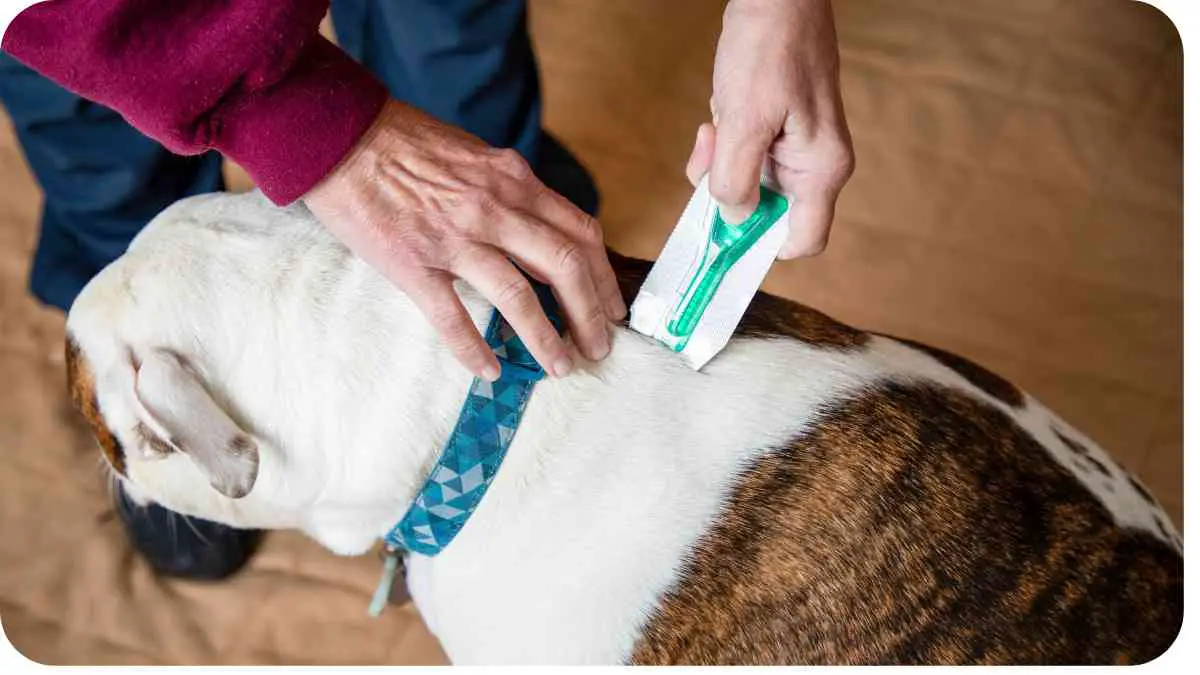Heartworms are a serious threat to our beloved canine companions. If you’ve ever heard the term “heartworm disease,” you might have been alarmed and rightly so. This condition can be fatal if left untreated. Fortunately, effective treatments for heartworms in dogs exist, and preventive measures can keep your furry friend safe.
In this article, we’ll dive deep into what heartworm disease is, how it’s diagnosed, and the various treatments available. By understanding the ins and outs of this condition, you can take proactive steps to protect your dog’s health.
| Key Points |
|---|
| Heartworm disease is a serious condition caused by parasitic worms that can be fatal if left untreated. |
| Regular testing and preventive medications are essential to protect your dog from heartworm disease. |
| Early symptoms include a mild persistent cough and fatigue, while advanced symptoms can involve severe respiratory issues and heart failure. |
| Diagnosis involves antigen tests, microfilaria tests, chest X-rays, and echocardiograms. |
| Treatment typically includes melarsomine injections and antibiotics, with severe cases possibly requiring surgery. |
| Post-treatment care requires strict rest and limited exercise to prevent complications. |
| Preventive measures such as monthly medications and environmental management are key to avoiding heartworm infection. |
| Myths about heartworms, such as only outdoor dogs being at risk, are false; all dogs can be affected. |
| Consult your veterinarian regularly for the best preventive and treatment strategies tailored to your dog’s needs. |
| Knowledge and proactive care can ensure your dog remains healthy and heartworm-free. |
Understanding Heartworm Disease

What are Heartworms?
Heartworms are parasitic worms (Dirofilaria immitis) that live in the heart, lungs, and associated blood vessels of affected dogs. They can cause severe lung disease, heart failure, and damage to other organs in the body. These worms are transmitted through the bites of infected mosquitoes, making warm and humid climates particularly risky.
Dealing with various infections in dogs requires different approaches. For example, if you’re wondering how to treat a yeast infection on your dog’s paw, it’s essential to follow proper hygiene and medication guidelines to ensure effective treatment and recovery.
Lifecycle of Heartworms
The lifecycle of a heartworm begins when a mosquito bites an infected animal and ingests microfilariae (immature heartworms). These microfilariae develop into infective larvae within the mosquito over about two weeks. When the mosquito bites another dog, the larvae enter the new host and migrate to the heart and lungs, maturing into adult worms over the next six months.
Signs and Symptoms of Heartworm Infection
Early Stage Symptoms
In the early stages, dogs may not show any signs of infection. This asymptomatic phase can last for several months, which is why regular testing is crucial. Early symptoms, when they appear, might include:
- Mild persistent cough
- Fatigue after moderate activity
- Decreased appetite
- Weight loss
Advanced Stage Symptoms
As the disease progresses, symptoms become more severe and can include:
- Swollen belly due to fluid accumulation
- Labored breathing
- Fainting
- Heart failure
Recognizing these symptoms early and seeking veterinary care immediately can significantly improve the prognosis for your dog.
Pet owners often worry about the sources of parasitic infections. One common concern is can dogs get worms from old bones, which underscores the importance of monitoring your pet’s environment and diet to prevent such health issues.
Diagnosing Heartworms in Dogs

Diagnostic Tests
Diagnosing heartworm disease typically involves several tests. The most common tests include:
| Test Type | Description |
|---|---|
| Antigen Test | Detects specific heartworm proteins; usually accurate for adult female worms |
| Microfilaria Test | Identifies microfilariae in the blood; confirms the presence of heartworms |
| Chest X-Rays | Assess the impact on lungs and heart |
| Echocardiogram (Echo) | Ultrasound of the heart to see the worms |
Interpreting Test Results
The results of these tests help veterinarians determine the severity of the infection and decide the best course of treatment. A positive antigen test followed by a positive microfilaria test confirms heartworm disease. X-rays and echocardiograms provide a clearer picture of the damage caused by the worms.
Preventive Measures for Heartworm Disease
Monthly Medications
One of the best ways to prevent heartworm disease is through monthly medications. These preventive medications kill the larvae before they can mature into adult worms. Options include:
| Medication Type | Examples |
|---|---|
| Oral Medications | Heartgard, Interceptor |
| Topical Treatments | Advantage Multi, Revolution |
| Injectable Preventatives | ProHeart (administered every 6-12 months) |
Annual Testing
Even if your dog is on preventive medication, annual heartworm testing is essential. This ensures that the prevention is effective and catches any possible infections early, before symptoms develop.
Understanding the dietary needs and limits of your pet is crucial. For instance, knowing how often can a dog have a bully stick helps maintain their dental health and overall well-being without overindulgence in treats.
Treatment Options for Heartworm Disease
Medications
Treatment primarily involves medications designed to kill adult heartworms. The most common treatment protocol includes:
- Melarsomine: An arsenic-based injectable drug that kills adult heartworms. It’s administered in a series of injections.
- Doxycycline: An antibiotic that kills the bacteria (Wolbachia) living inside the heartworms, making them weaker and easier to kill.
- Preventive Medications: Continue to kill any microfilariae and prevent new infections.
Surgical Intervention
In severe cases where there is a large number of adult worms, surgery might be necessary to physically remove them from the heart and blood vessels. This is typically considered a last resort due to the risks involved.
Medications Used in Heartworm Treatment
Melarsomine
Melarsomine is the cornerstone of heartworm treatment. It is given via deep intramuscular injection into the dog’s back muscles. The typical protocol involves two to three injections over several weeks. This medication is effective but can have side effects such as pain, swelling, and lethargy.
Antibiotics
Antibiotics like doxycycline are used to treat secondary infections and weaken the heartworms by targeting their symbiotic bacteria. This step helps improve the efficacy of melarsomine and reduce the risk of complications.
Alternative Treatments and Home Remedies
Natural Remedies
While there is no scientific evidence supporting the effectiveness of natural remedies for treating heartworms, some owners opt for herbal supplements and holistic approaches. However, these should never replace conventional treatments prescribed by a vet.
Dietary Adjustments
Feeding your dog a nutritious diet can support their immune system and overall health, particularly during recovery. High-quality proteins, omega-3 fatty acids, and antioxidants can be beneficial.
Parasites can be a significant issue for pets, and not just limited to worms. An important question is can dogs spread bed bugs, which highlights the need for vigilance in both parasite prevention and home cleanliness to protect your pet and household.
Recovery and Aftercare
Rest and Exercise Restrictions
Post-treatment care involves strict rest and limited exercise for your dog. Physical activity can increase the risk of complications, such as embolism, where dead worms can block blood vessels.
Monitoring Progress
Regular follow-up visits with the vet are crucial to monitor your dog’s progress. Blood tests and possibly imaging tests will be repeated to ensure the heartworms are completely eradicated.
Potential Complications and How to Handle Them
Common Complications
Some dogs may experience complications during treatment, including:
- Allergic reactions to medications
- Respiratory issues
- Thromboembolism (blockage of blood vessels by dead worms)
Emergency Situations
In case of severe complications, such as difficulty breathing or collapse, immediate veterinary attention is required. Keep emergency contact numbers handy and know the location of the nearest 24-hour animal hospital.
Cost of Heartworm Treatment
Cost Breakdown
Heartworm treatment can be expensive, often ranging from $500 to $1,500 or more. Here’s a breakdown:
| Expense Type | Estimated Cost Range |
|---|---|
| Diagnostic Testing | $100 – $200 |
| Medications (Melarsomine) | $300 – $600 |
| Hospitalization Fees | $200 – $500 |
| Follow-up Care | $100 – $300 |
Insurance and Financial Aid
Pet insurance can help cover some of these costs. Additionally, some organizations offer financial assistance for pet owners in need. Check with your vet or local animal welfare organizations for options.
When it comes to dog health, diet plays a pivotal role. For example, evaluating are French fries safe for dogs to eat involves understanding the potential health risks associated with feeding your dog human foods and ensuring their diet remains balanced and nutritious.
Heartworm Prevention Tips

Environmental Management
Reduce your dog’s exposure to mosquitoes by keeping them indoors during peak mosquito activity times and using mosquito repellents safe for pets.
Preventive Products
Consistently using preventive products is key. Choose a preventive that suits your dog’s lifestyle and health status, and stick to the recommended schedule.
Myths and Misconceptions about Heartworm
Common Myths
There are several myths about heartworm disease, such as:
- Only outdoor dogs get heartworms.
- Cats don’t get heartworms.
- Heartworm treatment is always harmful.
Fact-Checking
Indoor dogs and cats are also at risk, as mosquitoes can enter homes. While cats are less susceptible, they can still get heartworms. Modern treatments are safe and effective when administered correctly.
Expert Insights and Tips
Veterinarian Advice
Dr. Jane Smith, a renowned veterinarian, emphasizes the importance of year-round prevention and regular testing. “Heartworm disease is almost entirely preventable with the right measures,” she says.
Real-life Cases
Consider the story of Max, a golden retriever diagnosed with heartworms. His owner, Sarah, followed the treatment protocol diligently, and Max made a full recovery. “It was a challenging time, but with the right treatment and care, Max is now healthy and heartworm-free,” Sarah shares.
Conclusion
Heartworm disease is a serious condition, but with the right knowledge and proactive measures, it can be prevented and treated effectively. Regular testing, preventive medications, and timely treatment are key to keeping your dog healthy. Always consult your veterinarian for the best course of action tailored to your pet’s needs. With vigilance and care, you can ensure your furry friend remains safe from the threat of heartworms.
Further Reading
For more detailed information on heartworm disease in dogs, including treatment options and preventive measures, check out these valuable resources:
- Heartworm Disease in Dogs – Treatment | VCA Hospitals: This comprehensive guide from VCA Hospitals covers everything you need to know about treating heartworm disease in dogs, including medications and post-treatment care.
- How to Treat Heartworms in Dogs | PetMD: PetMD provides an in-depth look at the treatment process for heartworm disease, including common medications and what to expect during recovery.
- Heartworm Disease | Cornell University College of Veterinary Medicine: Learn about heartworm disease from the experts at Cornell University, including the lifecycle of heartworms, symptoms, and the latest research on treatment and prevention.
FAQs
What is heartworm disease in dogs?
Heartworm disease is a serious condition caused by parasitic worms living in the heart, lungs, and blood vessels of infected dogs. These worms are transmitted through mosquito bites and can lead to severe health problems if left untreated.
How can I prevent my dog from getting heartworms?
Preventing heartworm disease involves administering monthly heartworm preventive medications and ensuring your dog undergoes annual testing. Keeping your dog indoors during peak mosquito activity and using mosquito repellents can also help reduce the risk.
What are the signs that my dog might have heartworms?
Early signs of heartworm infection include a mild persistent cough, fatigue after moderate activity, decreased appetite, and weight loss. In advanced stages, symptoms can worsen to include a swollen belly, labored breathing, fainting, and heart failure.
How is heartworm disease diagnosed?
Heartworm disease is diagnosed through a combination of tests, including antigen tests that detect heartworm proteins, microfilaria tests that identify immature worms in the blood, chest X-rays, and echocardiograms to assess heart and lung damage.
What are the treatment options for heartworm disease?
Treatment typically involves a series of injections with melarsomine to kill adult heartworms, antibiotics like doxycycline to weaken the worms, and continued use of preventive medications to eliminate microfilariae. In severe cases, surgical intervention may be necessary to remove the worms.

I am Dr Hellen James a veterinarian, pet lover, and writer. I have many years of experience caring for pets, including dogs, cats, birds, and fish (and even axolotls!). I love spending time with the animals in my life, especially when they are sick or need love.

